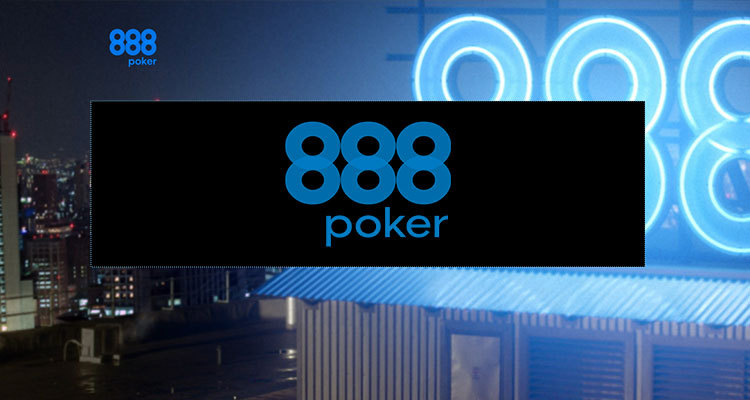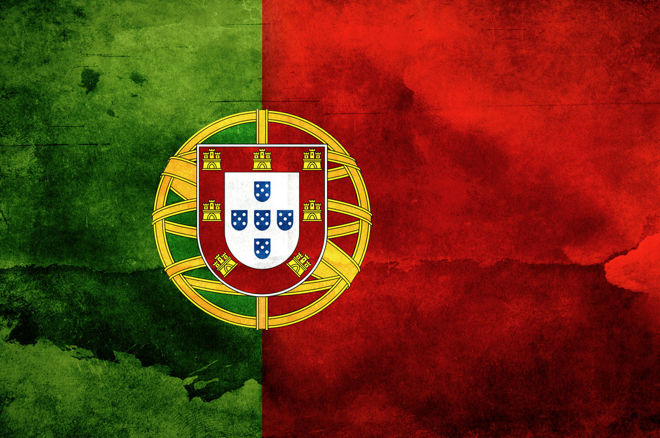Portugal Gambling Regulator
Gambling regulators in Portugal. Contacts and data of the state control authorities in the country, where gambling is legal.
| Casino Lisboa | |
|---|---|
| Opening date | April 19, 2006 |
| Theme | Lisbon |
| Casino type | Land |
| Owner | Sociedade de Turismo e Diversões de Macau |
| Architect | Stanley Ho, Teddy Yip, Yip Hon and Henry Fok |
| Website | Official website |
Portugal Gambling Regulator Of Energy
- PORTUGAL Regulated gambling products: Sports betting, horse race betting, poker, casino, bingo and lottery. Operator type: Any EU/EEA operator can apply to be granted a licence for online gambling. Lottery games and land-based fixed-odds sports betting remain reserved for a monopoly. Status: A regulated market since 2015. Although operators can.
- Portugal's newly approved online gaming regulation aims to regulate online poker, online casino and online betting in order to create a safer environment for the country's players and - at the.
Casino Lisboa is a casino located at Parque das Nações (Park of the Nations) in the city of Lisbon, Portugal. It was inaugurated and opened to the public on April 19, 2006.
The casino, at the time of opening, had around 700 slot machines (expandable to 1,000), 22 gaming tables, 4 bars, 3 restaurants and a theater seating 600.
Casino Lisboa is owned by Estoril-Sol, a company majority-owned by Hong Kong-Macau gambling king Stanley Ho until his death in 2020, with a minority shareholder with 33%, Amorim. Stanley Ho also owned the same-name Casino Lisboa in Macau. Amorim is a Portuguese conglomerate, with two other casino concessions in Portugal (Figueira da Foz and Tróia).
The CEO of Estoril-Sol is Mário Assis Ferreira.
Controversies[edit]
Location[edit]
The casino has been plagued by controversy since it was green-lighted around 2001-2002 by Pedro Santana Lopes, the Lisbon Mayor. The casino was conceived as a way to fund the rebuilding of Parque Mayer, Lisbon's decadent theater district. The fact that it was to be the first casino in the country inside a major urban center (instead of a tourist area) stirred up many negative reactions claiming the casino would create gambling problems, as it would facilitate access of a younger population to games of chance by bringing the games closer to the people.
The projected location within the city itself was publicly changed several times after 'definitive' announcements by the Mayor. Withdrawn locations, in succession, were Parque Mayer itself (a project by Frank Gehry that was already underway was suspended), Cais do Sodré, Jardim do Tobacco, and Feira Popular, before finally settling on Parque das Nações.
Concession[edit]
All gambling in Portugal is subject to a concession by the State. For that purpose, the country is divided in gaming zones, each having its own concessionary with usually a single casino. The Lisbon Casino falls within the Estoril gaming zone, and as such, was assigned to the concessionary of that zone. However, other gaming concessionaries protested that since it was a new casino, a new gaming zone should be established and an application process for the concession should be opened. Estoril-Sol and the Portuguese Government argued that, despite usually only one casino by gaming zone being allowed, nothing in the law prevented each zone from having more than one - and, in fact, the Algarve gaming zone set up a precedent, having three casinos.
Location[edit]
The casino took up the former Pavilhão do Futuro (Pavilion of the Future), one of the main attractions of the World Expo of '98, which was extensively rebuilt for its new purpose under a project by architect Fernando Jorge Correia. The original architects for the Pavilion (Ana Paula Lopes dos Santos, Miguel Ferreira Guedes de Carvalho and Rui Jorge Garcia Ramos) obtained an injunction to halt construction work on the grounds of copyright violation (due to changes in the façade and in the structure of the building). A superior court overruled the claim, but the construction work was still halted from January to April 2005.
Business[edit]
Early figures[edit]
The casino was built for 108.9 million Euro, including the 15-year concession fee of € 30 million.
In the first two months of operation, the casino management repeatedly told the press that business was going better than planned. Target number of daily visitors was 6,000 a day; real numbers were 10,000 in the first 30 days and 7,000 until the end of June 2006. Each visitor spent € 90 in gambling. In late June, the casino shifted its opening hours from 3 pm - 3 am to 4 pm - 4 am on weekends (Friday and Saturday). This schedule also applies to eves of holidays.
In the first five months of operation, total revenues reached € 30.2 million.

Target annual turnover was € 70 million. 50% of the turnover (intake less prize payouts) reverts to the State as part of the concession terms, but otherwise the company is exempt from the usual income tax laws. In June alone, € 14 million were awarded in prizes, for around a 90% payout ratio.
Sales on nearby commerce, including the huge Centro Vasco da Gama shopping mall, are reported to have increased overall.
Effects on Estoril Casino[edit]
The workers at Estoril Casino, the biggest in Europe, went on strike in January 2005, claiming the opening of the Lisbon Casino, only 35 km away, would reduce the number of clients and threaten their job security. The administration of Estoril-Sol had presented them with a Company Agreement, which said that, if in 36 months, the revenue had gone down due to the Lisbon Casino, they would be able to downsize the workforce. This issue was never fully solved.
The company had announced a projected 20% decline in the revenue of the old casino. That decline was announced to have been just 0,9% in the first month, and 15% after five months.
External links[edit]
Coordinates: 38°45′53.56″N9°05′47.74″W / 38.7648778°N 9.0965944°W
On Thursday, Feb. 26, Portugal's Council of Ministers approved a bill that will regulate online poker in the country. The government believes that the new gambling legislation will generate additional fiscal revenues of €25 million.
Four years after Europe's Troika, the triumvirate composed by the European Commission (EC), the European Central Bank (ECB) and the International Monetary Fund, asked Portugal's authorities to regulate the online gambling industry, the government approved a piece of legislation that should start to show its first effects before the end of 2015.
'The bill will proceed with the regulation of online gambling in line with the recommendations issued by the EC on this matter and the international best practices,' Portugal's government stated in a press release after the meeting of its Ministers.
Portugal's newly approved online gaming regulation aims to regulate online poker, online casino and online betting in order to create a safer environment for the country's players and - at the same time - bring new fiscal revenues for approximately €25 million.
Once the law will be signed by Portugal's President Aníbal Cavaco Silva and published in the country's official bulletin, it will immediately create a new license-based market similar to the ones already in place in Spain, Italy and France. Authorities believe that the first licenses could be issued during the third quarter of 2015.
According to Portugal's government, 'licenses will be awarded to all the companies that will ensure the full respect of a set of financial, economic and technical requirements.' Portugal's state-issued gambling licenses will reportedly be valid for three years and will be renewable.
The control and the regulation of the market will be left in the hands of the Turismo de Portugal (ITP), the country's tourism institute part of the Ministry of Finance. The ITP will exercise its regulatory powers through a new Gambling Commission.
As PokerNews Portugal reports, games of luck and chance, gambling games, and horse racing betting are likely to be imposed a tax between 15 and 30 percent on their Gross Gaming Revenue (GGR). Sports betting, instead, is likely to be taxed between 8 to 16 percent.
According to Portugal's daily Expresso, the government has already included extra revenues for approximately 25 million Euros in the country budget as it is believed that this could be the sum generated by the sale of the gambling licenses and the taxes applied to the industry.
Portugal Gambling Regulator Stocks
What is not clear, to date, is if the new regulation will establish in Portugal a ring-fenced market similar to the ones active in the Mediterranean side of Europe (France, Italy, Spain), or it will allow Portuguese players to join the international players pool following the example of countries like the United Kingdom or Denmark.
Given scope of the legislation, however, it is expected for Portugal to not establish a ring-fenced market - as this would make the market less attractive to international online gaming and gambling companies and, therefore, lead to smaller revenues for the State.
During the same meeting, Portugal's Council of Ministers approved new regulation in regards to gambling advertising - with new norms that will become effective once the online regulated market will finally start functioning.

Upon receipt of a license to operate in Portugal, online gaming, gambling and betting companies will be allowed to advertise their products in the country under the same set of rules that is currently applied to alcohol. This means that licensee companies will not be allowed to advertise their games in proximity of schools and will not be allowed to run TV or radio ads during some specific time-slots.
Image courtesy of Mario Proenca/Bloomberg
Get all the latest PokerNews updates on your social media outlets. Follow us on Twitter and find us on both Facebook and Google+!
Tags
Poker and the LawGambling legislationOnline PokerPoker TaxesPokerNews Updates